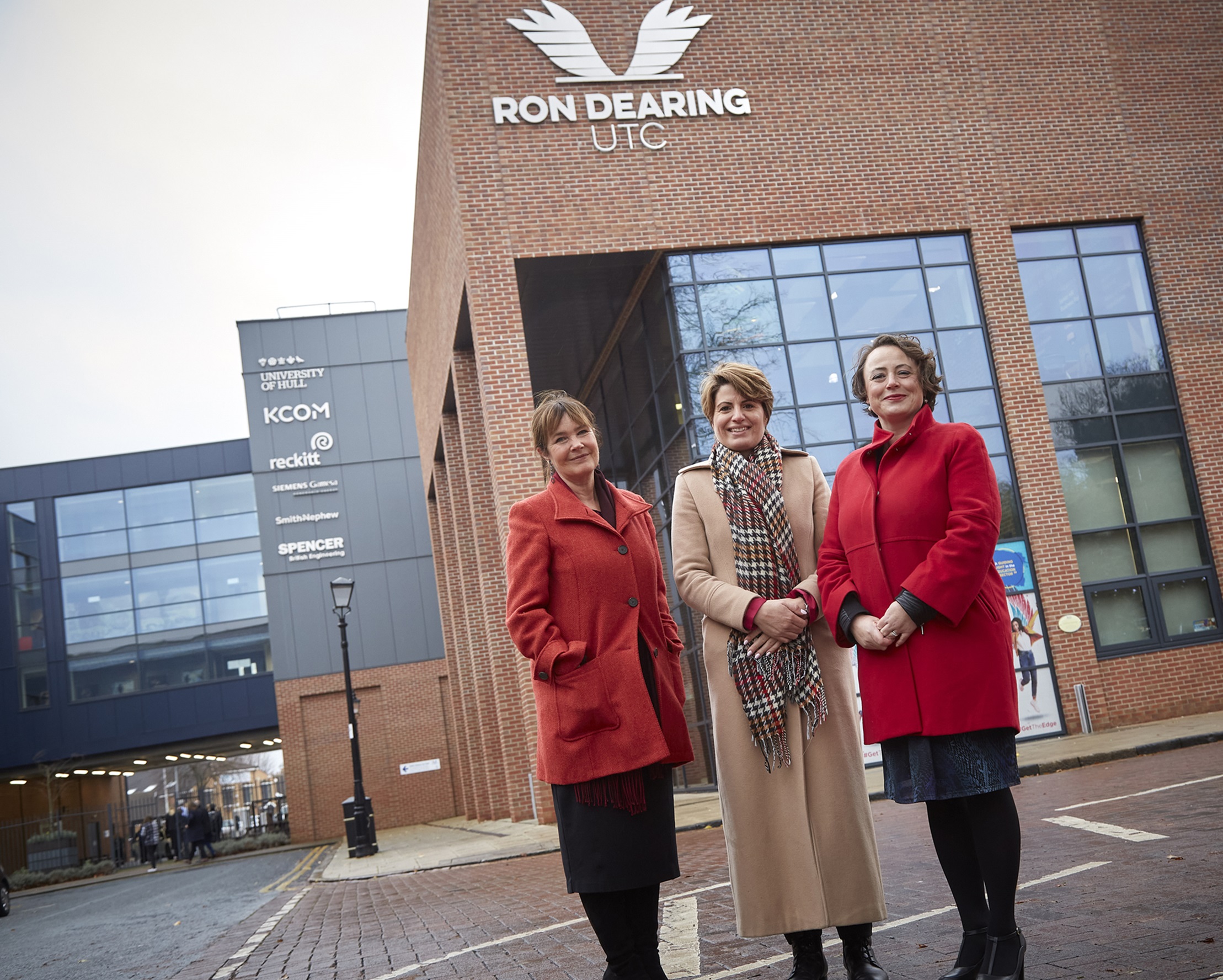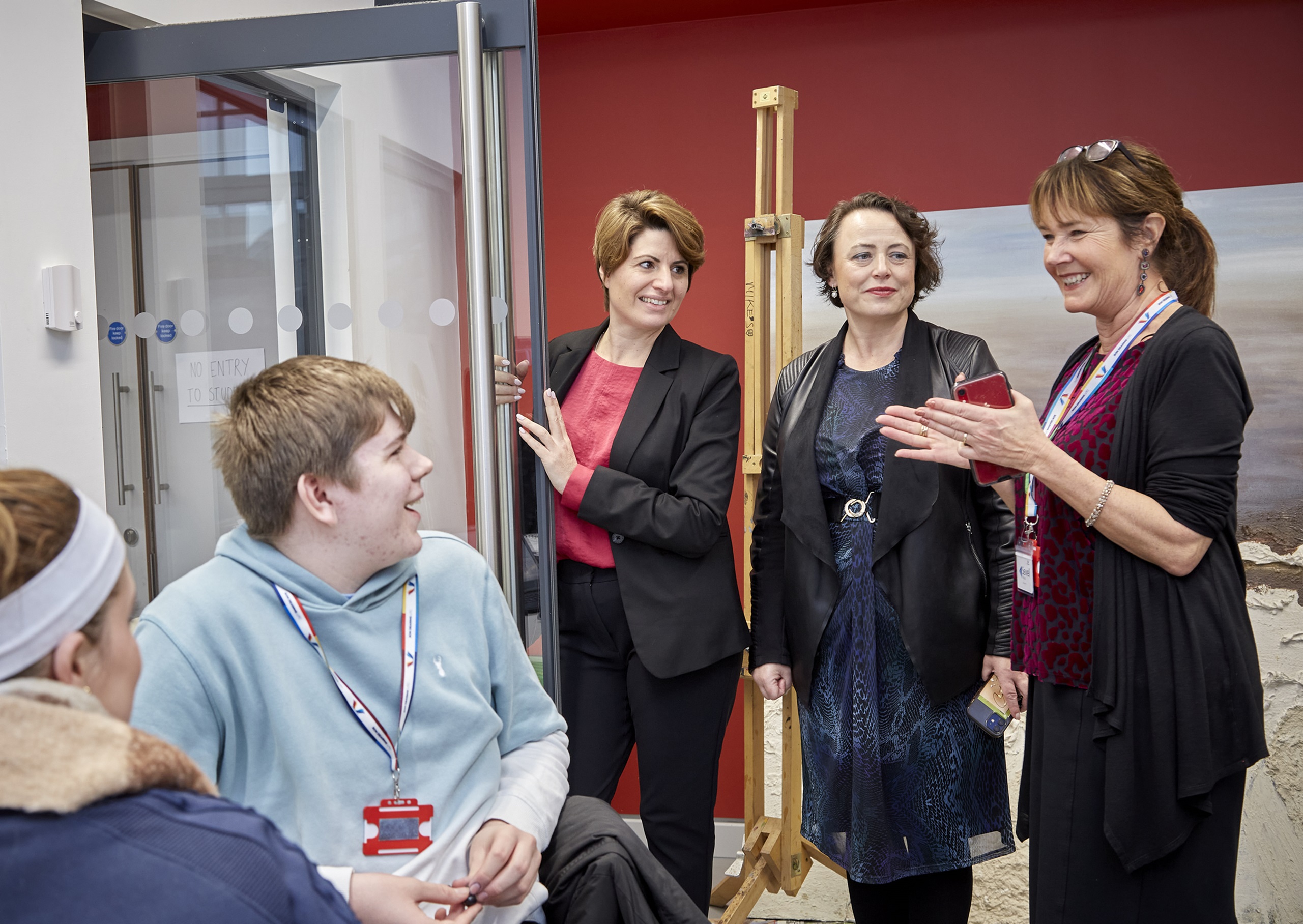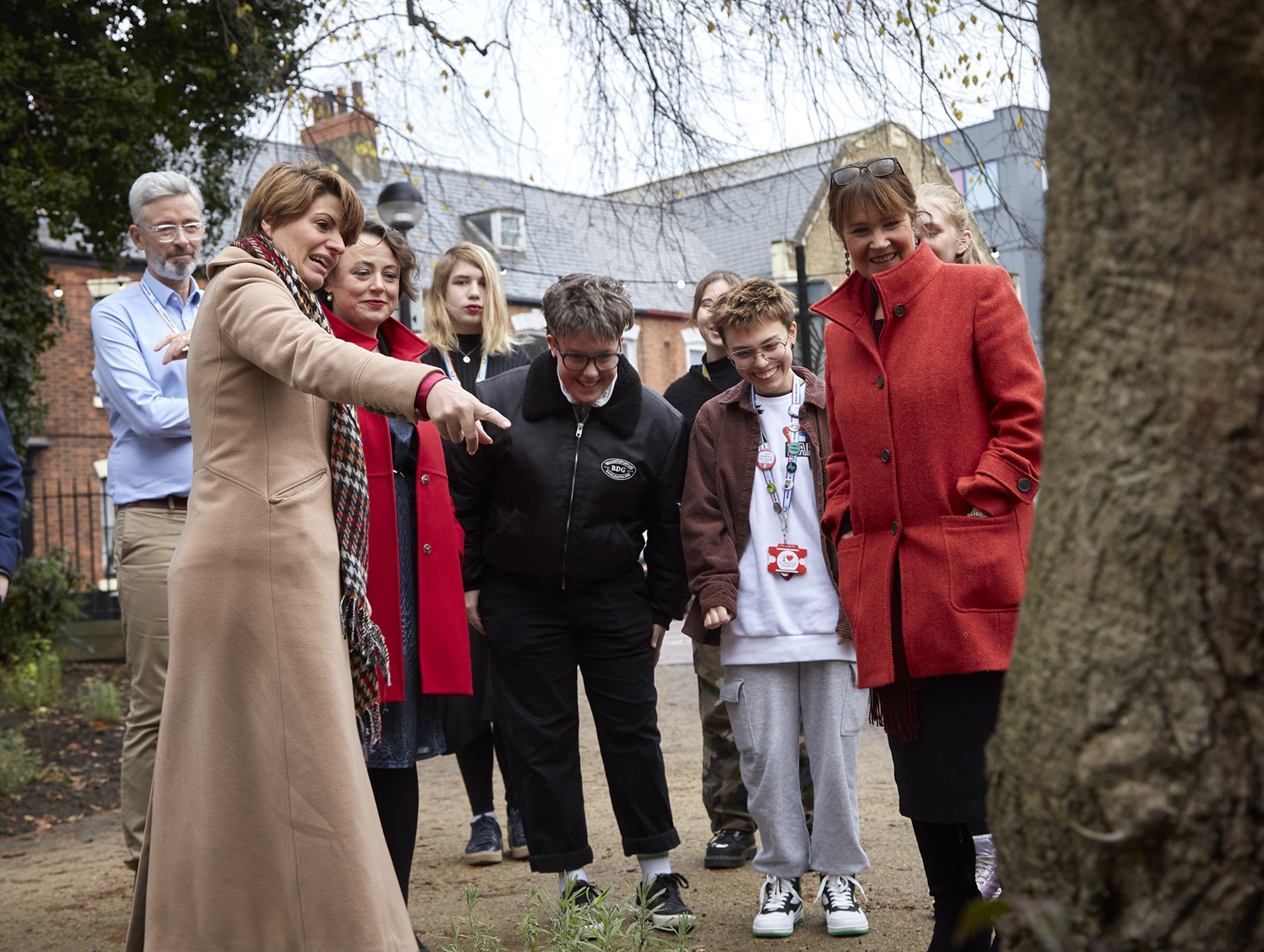The Principal of Hull’s Ron Dearing University Technical College (UTC) is calling for changes to the curriculum so all schools can offer subjects that help bridge skills gaps to benefit the economy and the drive to net zero.
Sarah Pashley says the English Baccalaureate (EBacc), which includes GCSEs in English Language and Literature, Maths, Science, a language and Geography or History, should be scrapped to give schools across the country the freedom to put technology and creativity at the heart of learning, alongside more traditional academic subjects.
UTCs are exempt from the EBacc and can offer their own curriculum, which, at Ron Dearing UTC, includes technical and creative qualifications.
Shadow Schools Minister Catherine McKinnell visited Ron Dearing UTC with Hull West and Hessle MP Emma Hardy to meet students involved in its Eco Club, which is part of an extensive enrichment programme to broaden students’ horizons outside the classroom.
The students are working with Hull City Council to plant an area of Kingston Square, opposite the UTC in the city centre, with butterfly, bee and bat-friendly plants to increase biodiversity and pollination, drawing on their creative and scientific knowledge.
In addition, the shadow minister met students involved in the F1 in Schools Challenge, the world’s largest Science, Technology, Engineering and Mathematics (STEM) competition, which inspires engineers of the future. The Ron Dearing F1 in Schools students are working alongside Major Partner Porsche Centre Hull to look at sustainability within the automotive industry.

She also heard from the team at Sewell Construction, another of the UTC’s Major Partners, as they told students about sustainable construction and how they retro-fitted the former Hull Central Fire Station to transform it into the recently-opened, low carbon STEAM Studios creative hub.
Sarah Pashley said: “The current emphasis on the EBacc is not meeting the needs of industry or society because it doesn’t include any arts subjects, with means these subjects are devalued. This is a great shame.
“Arts subjects are essential to developing creative thinking and cultural capital. They encourage self-expression while building confidence and a sense of individual identity.
“The EBacc also doesn’t include any technical or digital qualifications, which makes no sense. The Government has recognised there’s a big skills gap in STEM and they’ve tried to address this with their White Paper, which introduces more tech qualifications for 16 to 18-year-olds.
“However, their aspiration that 90% of Key Stage 4 students study the EBacc is killing the technical curriculum in Years 10 and 11.
“The great thing about being a UTC is we’re exempt from the EBacc curriculum and we’re free to choose qualifications that industry needs and which best meet the needs of our students.
“It’s becoming increasingly urgent that more students study technical and digital qualifications as we strive to achieve net zero targets and renewable industries desperately need people with skills to develop and install technology.
“At Ron Dearing UTC, we’re able to put sustainability, creativity, engineering and sciences at the heart of our curriculum and focus on teaching our students industry-critical skills.
“We were delighted to welcome Catherine to Ron Dearing UTC and our students were very interested to talk to her, while showcasing some fantastic sustainability projects they’ve been working on.”

Sarah Pashley said the school’s outstanding exam results, very high attendance and the exciting university courses and apprenticeships that students have gone onto after leaving the UTC all show that a non-EBacc curriculum works for young people, universities and employers. She said it raises standards of attainment and attendance – a major problem nationally since the Covid-19 pandemic.
She added: “A lot of young people become disengaged in their GCSE years because schools are being forced to drive significant numbers of pupils down the EBacc route. Many young people want to study humanities and languages in Key Stage 4 and should be able to do so. However, many others do not.
“Forcing them to do so demotivates them, impacts their exam results and attendance negatively and fails to address the STEM and creative skills gaps.
“The Government needs to give creative, digital and technical qualifications equality with traditional academic qualifications and ditch its obsession with the EBacc.”
Ron Dearing UTC caters for students aged between 14 and 19, offering a unique model of employer-led education with a specialist focus on creative arts, digital technology, computing and engineering.
The school has recently expanded its capacity from 600 to 800 students following funding from the Department for Education’s (DfE) Post-16 Capacity Fund. Hull’s former Hull Central Fire Station has been transformed into STEAM Studios, the school’s new dedicated centre for creativity.
Catherine McKinnell said: “It was fantastic to meet pupils and leaders at Ron Dearing UTC and to see the broad and rich curriculum that is being delivered. Unfortunately, too many young people leave education without the qualifications and pathways they need.
“Labour’s Curriculum and Assessment Review will focus on delivering high and rising standards in the basics of reading, writing and Maths, alongside enriching subjects like Art, Music, Sport and Drama.
“We need to ensure young people leave school with both knowledge and confidence with skills such as communication, critical thinking, problem solving and teamwork to set them up to succeed.”

Emma Hardy is behind a project to make Hull the country’s first Butterfly City by planting thousands of Alder Buckthorn trees to attract Brimstone butterflies and bees, as the decline in insects is having a major impact on pollination.
Working in partnership with Hull City Council, Ron Dearing UTC students planted lavender, buddleia, foxgloves, honeysuckles and spurges which will help to brighten the area while increasing biodiversity and enabling them to learn more about pollination and improving the environment.
Emma Hardy said: “I’m really impressed with the facilities Ron Dearing UTC have and their commitment to including the environment and biodiversity as part of their curriculum. This enables students to have pride and take ownership of their community and surroundings, which are important values to instil.
“I’m on a mission to increase biodiversity in Hull and to support people with taking care of their local environment. It’s therefore great to see schools encouraging children to do this from a young age.
“Ron Dearing UTC is a fantastic blueprint for other schools and organisations hoping to incorporate biodiversity and environment in their work and I will continue to support this in any way I can.”